Related Research Articles
Blues is a music genre and musical form which was originated in the Deep South of the United States around the 1860s by African-Americans from roots in African-American work songs, and spirituals. Blues incorporated spirituals, work songs, field hollers, shouts, chants, and rhymed simple narrative ballads. The blues form, ubiquitous in jazz, rhythm and blues and rock and roll, is characterized by the call-and-response pattern, the blues scale and specific chord progressions, of which the twelve-bar blues is the most common. Blue notes, usually thirds, fifths or sevenths flattened in pitch are also an essential part of the sound. Blues shuffles or walking bass reinforce the trance-like rhythm and form a repetitive effect known as the groove.
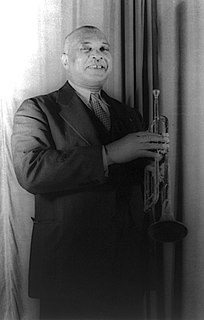
William Christopher Handy was a composer and musician who referred to himself as the Father of the Blues. Handy was one of the most influential songwriters in the United States. One of many musicians who played the distinctively American blues music, Handy did not create the blues genre but was the first to publish music in the blues form, thereby taking the blues from a regional music style with a limited audience to a new level of popularity.

William Grant Still Jr. was an American composer of nearly 200 works, including five symphonies, four ballets, eight operas, over thirty choral works, plus art songs, chamber music and works for solo instruments. Born in Mississippi, he grew up in Little Rock, Arkansas, attended Wilberforce University and Oberlin Conservatory of Music, and was a student of George Whitefield Chadwick and later Edgard Varèse. Due to his close association and collaboration with prominent African-American literary and cultural figures, Still is considered to have been part of the Harlem Renaissance.

"Saint Louis Blues" is a popular American song composed by W. C. Handy in the blues style and published in September 1914. It was one of the first blues songs to succeed as a pop song and remains a fundamental part of jazz musicians' repertoire. Louis Armstrong, Bing Crosby, Bessie Smith, Count Basie, Glenn Miller, Guy Lombardo, and the Boston Pops Orchestra are among the artists who have recorded it. The song has been called "the jazzman's Hamlet." Composer William Grant Still arranged a version of the song in 1916 while working with Handy.

John Milford Rutter is an English composer, conductor, editor, arranger, and record producer, mainly of choral music.

Blues dancing is a family of historical dances that developed alongside and were danced to blues music, or the contemporary dances that are danced in that aesthetic. Amateur Dancer carried an article entitled "Blues and Rhythm and Blues Dancing" in a July/August 1991 issue.
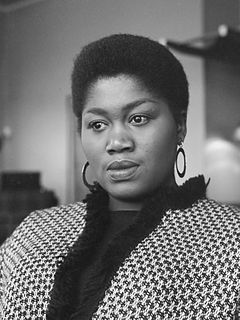
Odetta Holmes, known as Odetta, was an American singer, actress, guitarist, lyricist, and a civil and human rights activist, often referred to as "The Voice of the Civil Rights Movement". Her musical repertoire consisted largely of American folk music, blues, jazz, and spirituals. An important figure in the American folk music revival of the 1950s and 1960s, she influenced many of the key figures of the folk-revival of that time, including Bob Dylan, Joan Baez, Mavis Staples, and Janis Joplin. Time magazine included her recording of "Take This Hammer" on its list of the 100 Greatest Popular Songs, stating that "Rosa Parks was her No. 1 fan, and Martin Luther King Jr. called her the queen of American folk music."

Henry Thacker ("Harry") Burleigh was an American classical composer, arranger, and professional singer known for his baritone voice. The first black composer instrumental in developing characteristically American music, Burleigh made black music available to classically trained artists both by introducing them to spirituals and by arranging spirituals in a more classical form. Burleigh also introduced Antonín Dvořák to Black American music, which influenced some of Dvořák's most famous compositions and led him to say that Black music would be the basis of an American classical music.
Little is known about the exact origin of the music now known as the blues. No specific year can be cited as the origin of the blues, largely because the style evolved over a long period and existed in approaching its modern form before the term blues was introduced and before the style was thoroughly documented. Ethnomusicologist Gerhard Kubik traces the roots of many of the elements that were to develop into the blues back to the African continent, the "cradle of the blues". One important early mention of something closely resembling the blues comes from 1901, when an archaeologist in Mississippi described the songs of black workers which had lyrical themes and technical elements in common with the blues.
"Hesitation Blues" is a popular song adapted from a traditional tune. One version was published by Billy Smythe, Scott Middleton, and Art Gillham. Another was published by W.C. Handy as "Hesitating Blues". Because the tune is traditional, many artists have taken credit as writer, frequently adapting the lyrics of one of the two published versions. Adaptations of the lyrics vary widely, though typically the refrain is recognizably consistent. The song is a jug band standard and is also played as blues and sometimes as Western swing. It is cataloged as Roud Folk Song Index No. 11765. Composer William Grant Still arranged a version of the song in 1916 while working with Handy.
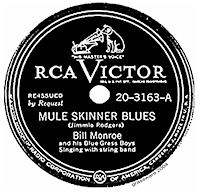
"Mule Skinner Blues" is a classic country song written by Jimmie Rodgers and George Vaughan. The song was first recorded by Rodgers in 1930 and has been recorded by many artists since then, acquiring the de facto title "Mule Skinner Blues" after Rodgers named it "Blue Yodel #8".
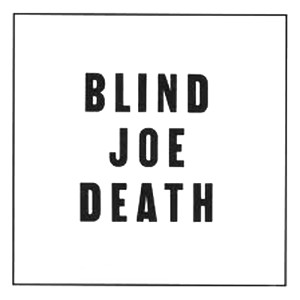
Blind Joe Death is the first album by American fingerstyle guitarist and composer John Fahey. There are three different versions of the album, and the original self-released edition of fewer than 100 copies is extremely rare.
"See See Rider", also known as "C.C. Rider", "See See Rider Blues" or "Easy Rider", is a popular American 12-bar blues folk blues song that became a blues and jazz standard. Gertrude "Ma" Rainey was the first to record it on October 16, 1924, at Paramount Records in New York. The song uses mostly traditional blues lyrics to tell the story of an unfaithful lover, commonly called an "easy rider": "See see rider, see what you have done", making a play on the word "see" and the sound of "easy".
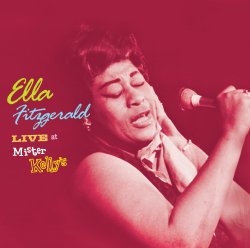
Ella Fitzgerald Live at Mister Kelly's is a live album of a 1958 Ella Fitzgerald performance at Mister Kelly's, and released in 2007.
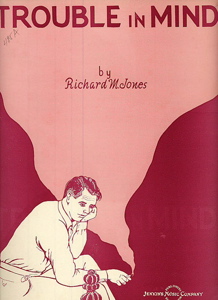
"Trouble in Mind" is a vaudeville blues-style song written by jazz pianist Richard M. Jones. It became an early blues standard, with numerous renditions by a variety of musicians. Although singer Thelma La Vizzo with Jones on piano first recorded the song in 1924, Bertha "Chippie" Hill popularized the song with her 1926 recording with Jones and trumpeter Louis Armstrong.

"The Memphis Blues" is a song described by its composer, W. C. Handy, as a "southern rag". It was self-published by Handy in September 1912 and has been recorded by many artists over the years.
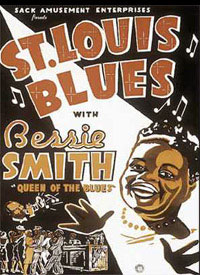
St. Louis Blues is a 1929 American two-reel short film starring Bessie Smith. The early sound film features Smith in an African-American speakeasy of the prohibition era singing the W. C. Handy standard, "St. Louis Blues". Directed by Dudley Murphy, it is the only known film of Bessie Smith, and the soundtrack is her only recording not controlled by Columbia Records.

St. Louis Blues is a 1958 album by Nat King Cole, arranged by Nelson Riddle. St. Louis Blues was the soundtrack to the film of the same name that starred Cole. The Billboard album chart placed the disc at a peak position of #18.

H. Franklin "Baby" Seals was an American vaudeville performer, songwriter and pianist, whose successful 1912 song "Baby Seals' Blues" was one of the first published blues compositions, predating W. C. Handy's "The Memphis Blues" by several months.
References
- ↑ William Christopher Handy; Abbe Niles; Elliott S. Hurwitt (2012). W.C. Handy's Blue. p. 262. ISBN 0486486192.
Another extraordinary example, in march time, is Shine Like a Morning Star, which is to be found only in Handy's own published arrangement.
- ↑ Evelyn Davidson White (1981). Choral Music by Afro-American Composers: A Selected, Annotated Bibliography (First ed.). Scarecrow Press. p. 118. ISBN 978-0810814516.
WILLIAM C. HANDY SECOND COLLECTION OF 37 SPIRITUALS Mixed Voices, Male Voices and Vocal Solos with Piano Accompaniment Arranged by William C. Handy ... Shine Like a Morning Star (SATB) 4
- ↑ David Robertson (2009). W.C. Handy: The Life and Times of the Man Who Made the Blues. Alfred A. Knopf. ISBN 978-0307266095.
Shine Like a Morning Star
- ↑ Leslie Gourse (2009). Sassy: The Life of Sarah Vaughan. p. 276. ISBN 0786751142.
Of the songs that were released, "Morning Star" was written by Jimmy Rowles with lyrics by Johnny Mercer, though W. C. Handy was given credit — apparently by accident — for the composition. This information comes directly from Jimmy